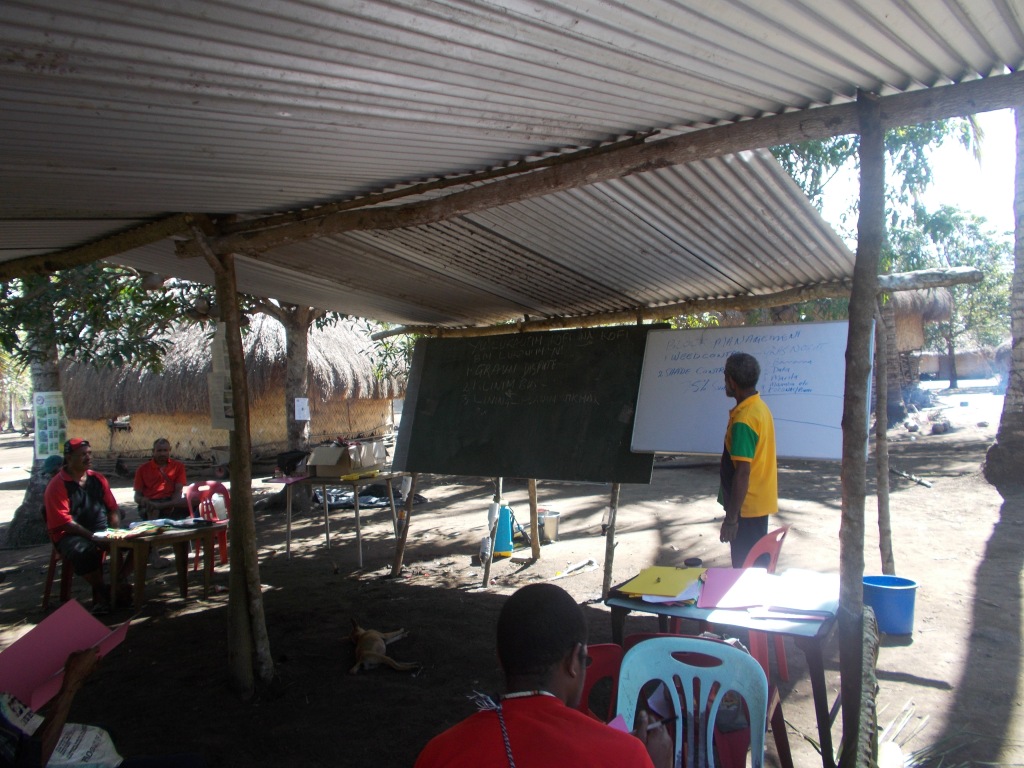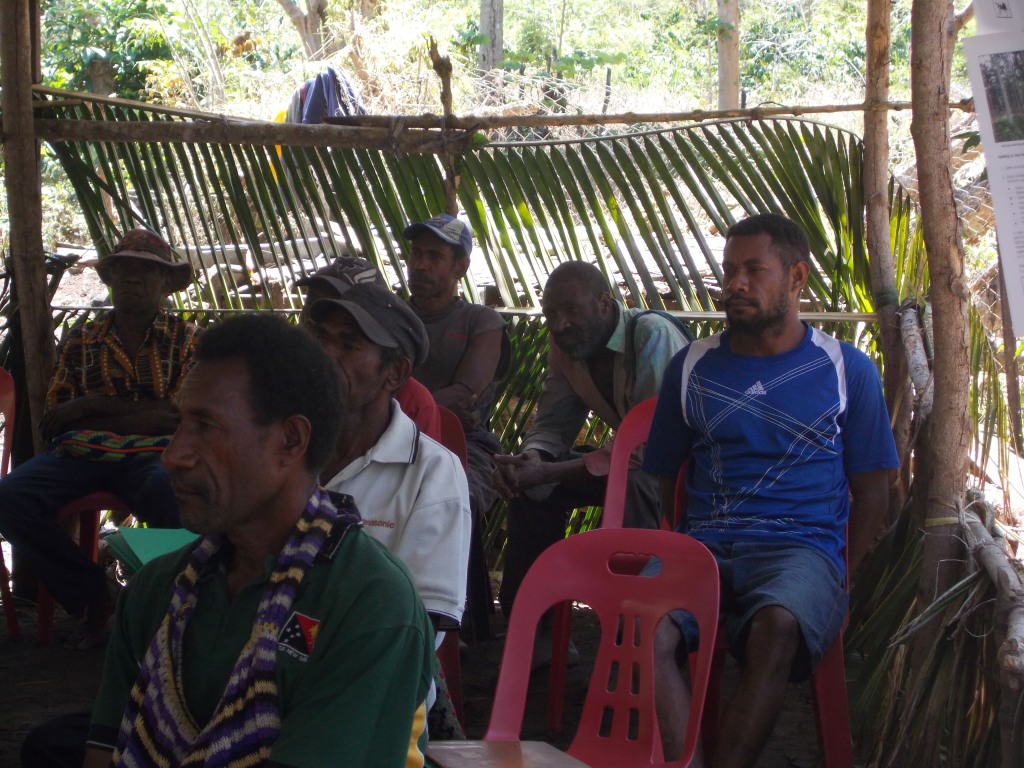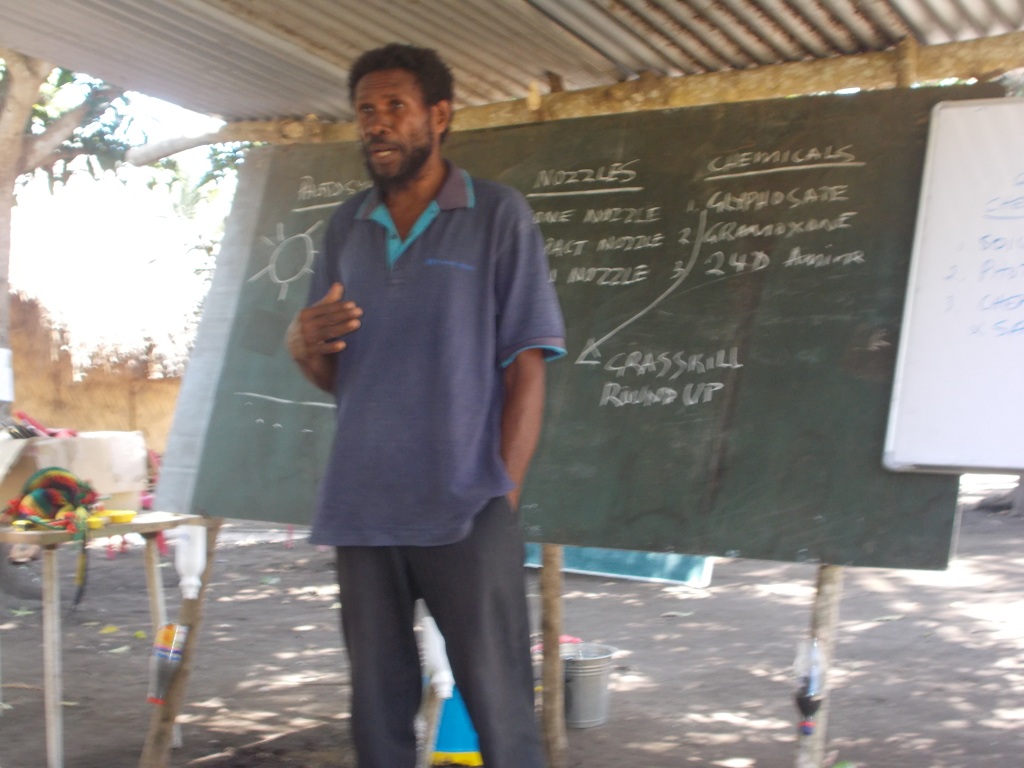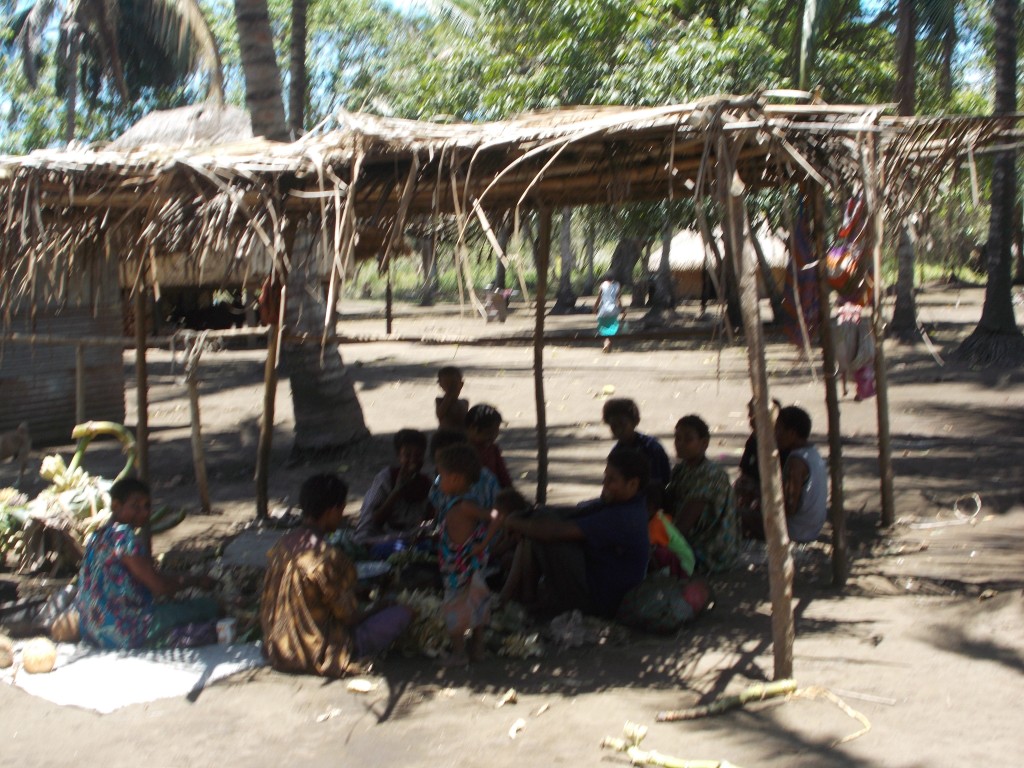
I took this photo of farmers attending a training on cocoa husbandary in Zumim village in Kaiapit in 2012.
This training was facilitated by extension officers from the Department of Agriculture and Livestock(DAL) based at Mutzing. My father was one of the officers at that time and so I had the privilege to accompany him so I could observe and see the kind of challenges extension officers go through on a daily basis and what they do despite very little financial support from the sector.

Despite the challenges, they still go out to help farmers. I remember driving to Zumin where farmers, mostly men who owned cocoa gardens in the village were keen to receive the team from Mutzing. Most of the farmers had little education but they came because they were interested to learn in an informal setting. And agriculture extension is that informal education process directed towards the rural population and the field is their classroom to learn. The training covered field demonstrations of growing cocoa and coffee in a nursery to transplanting in a garden, shading, intercropping and control of weeds and pests.

While the men attended this training in a makeshift shelter, women prepared food. I wanted to highlight here the role and importance of rural women in agriculture. Rural women are largely responsible for the food on the tables and households. Zumin village is no exception. It is one of those villages located along the highway in Markham which is vulnerable to extreme event such as drought. So you can imagine the challenge women and girls here face in maintaining their households while having to walk some distance to the nearest water source while trying to build sustainable livelihoods for their families. Women here are less resilient to climate change which means they are vulnerable like many other women in rural areas of Papua New Guinea.

For DAL officers, it takes a lot of passion and enthusiasm to be one. You have to do what you can, given the limitations you have and the kind of change you want to see implemented. Some times you need to hit pause on training sessions because there is not enough cash flow to buy seedlings and tools to continue with certain activities.

And the struggles of farmers will still be there but farmers need to remain focused on their dreams and aspirations to continue. DAL officers can only help where they can. On my last visit to Zumim recently, I was happy to learn that a lot has happened and Zumim farmers are now selling cocoa beans for income. Farmers need to comply to best husbandary practice to meet the standard and quality required by PNG Cocoa Board and the role of DAL is crucial here. While DAL can do its part, farmers need to be honest and creative to remain compliant to ensure they continue to benefit from extension services at the same time transform their communities.